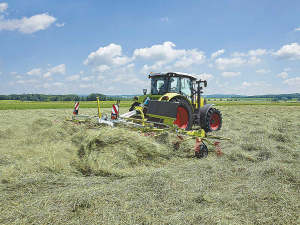While many sectors of the agricultural machinery were hit by the ravages of Covid-19, the effects of the pandemic did not prevent the privately-owned Claas Group from enjoying a 3.7% increase in sales during 2020.
The year also saw the company for the first time top €4.0 billion turnover.
While sales in its home country of Germany and the rest of Western Europe remained stable, the company reports these grew significantly in Eastern Europe – especially Russia. At 20%, the company also achieved its strongest growth in sales outside of Europe, with North America proving to be the most important growth driver.
Meanwhile, Claas says it also implemented several important investment projects as planned during the year, including new production technologies at the Le Mans tractor plant to increase efficiency. At Harsewinkel, the first phase of a modernisation project for combine harvester assembly was completed. Meanwhile, new sales centres in France and the UK were opened, alongside a new high-bay warehouse at the global parts distribution facility at Hamm in Germany.
Capital investments in fixed assets for 2020 was €131m (2019: €125m), and R&D expenditure continued at a high level of €237m (2019: €244m).
Despite the pandemic, global employee numbers remained stable at around 11,400 people.



















